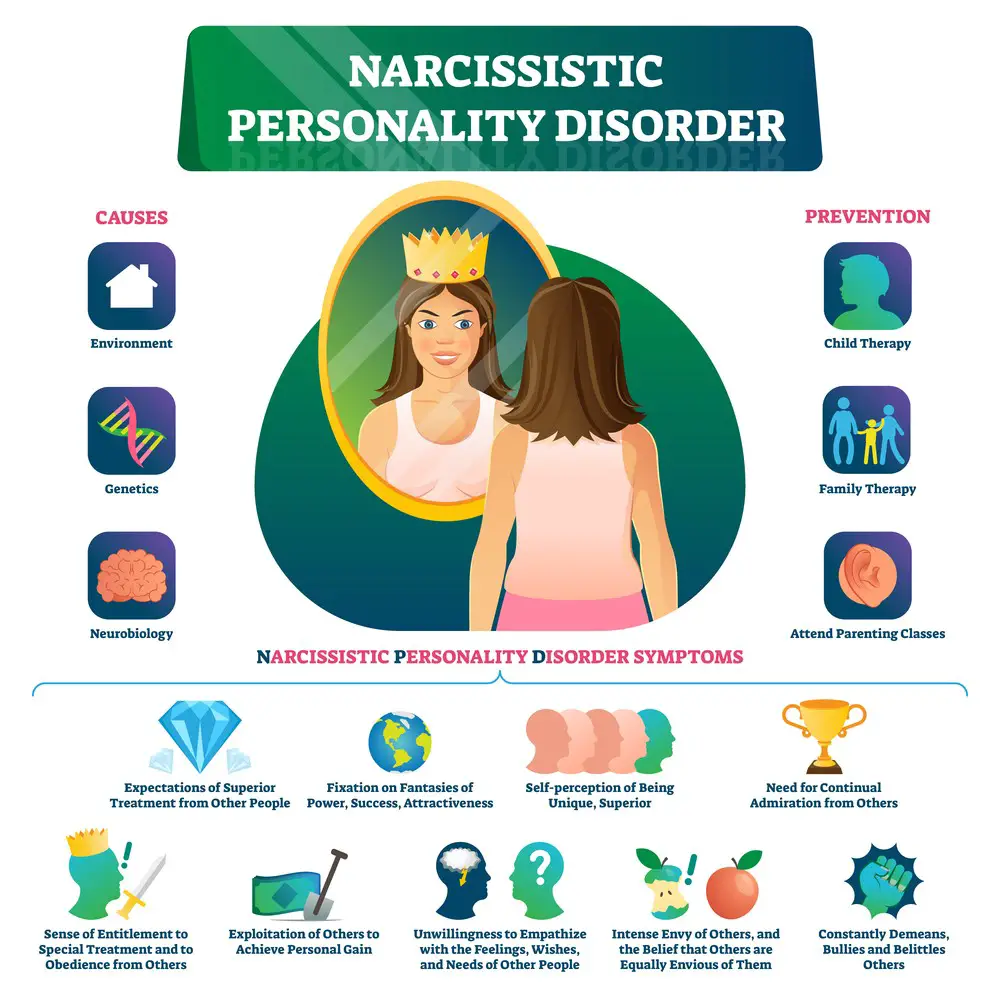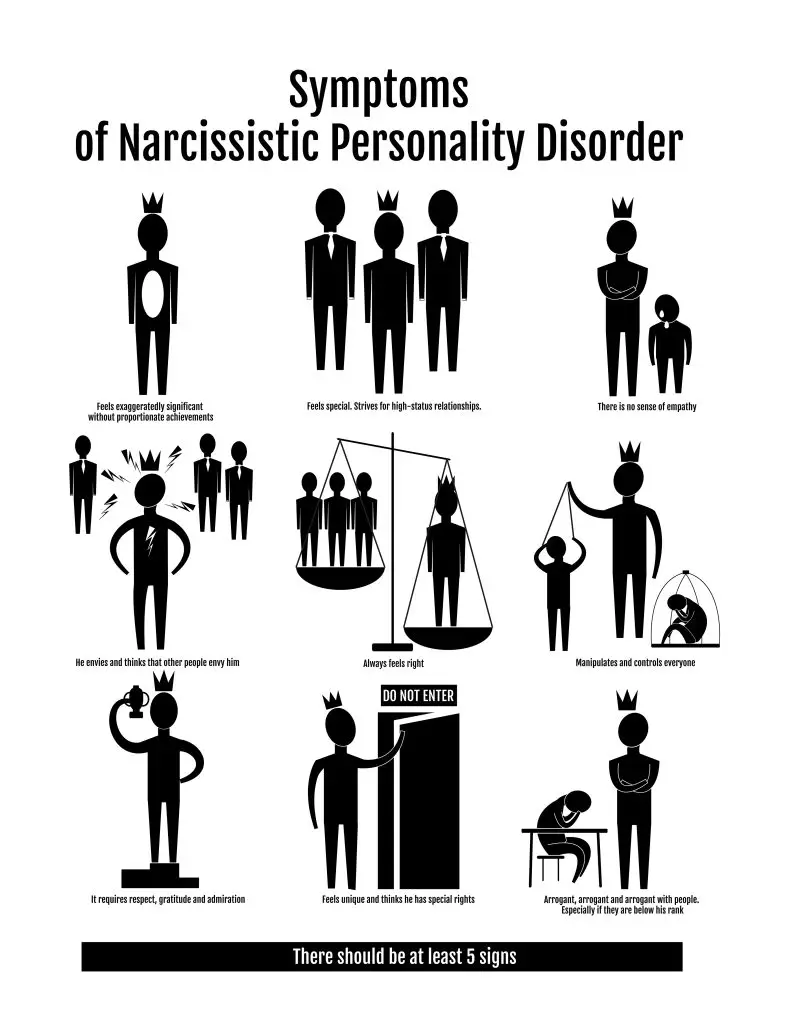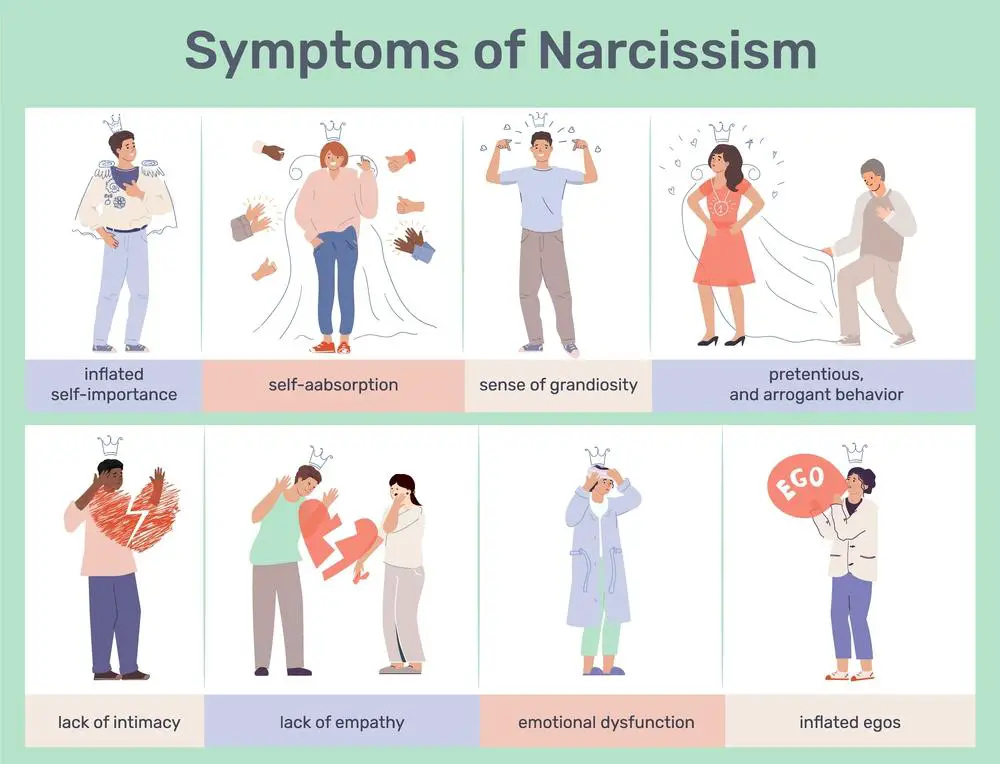As a BetterHelp affiliate, we receive compensation from BetterHelp if you purchase products or services through the links provided
Living with a narcissistic sibling can be challenging and shape family dynamics in unique ways. Understanding your sibling’s behavior is crucial to maintaining your well-being and navigating the intricate web of family relationships. Recognizing the signs of narcissism in a sibling involves understanding their need for admiration, lack of empathy for others, and a pattern of manipulation and grandiosity.
While a narcissistic sibling may have innate behavioral tendencies, the impact of their actions extends to those around them, potentially causing a range of emotional effects. It’s important to develop coping mechanisms to shield yourself from the negative influence a narcissistic sibling can exert. Establishing boundaries, seeking external support, and employing effective communication strategies are vital in managing this relationship.
Moving forward in such a relationship necessitates recognizing toxic patterns and addressing them. Although this may involve difficult conversations and decisions, prioritizing your mental health and well-being is essential. Dealing with the wider family also requires tact and understanding, as a narcissistic sibling’s behavior can influence family members differently.
Key Takeaways
- Understanding a narcissistic sibling involves recognizing their need for admiration and manipulative behaviors.
- Protecting yourself requires developing coping mechanisms and clear communication strategies.
- Prioritizing your emotional well-being is crucial when navigating the complexities of this dynamic.
 Understanding Narcissism
Understanding Narcissism
Identifying narcissistic behavior in a sibling can be pivotal for healthy family relationships. Here’s your guide to unraveling the complexity of narcissism.
Defining Narcissistic Personality Disorder
Narcissistic Personality Disorder (NPD) is a mental condition characterized by a long-term pattern of exaggerated self-importance, a deep need for excessive attention, troubled relationships, and a lack of empathy for others. To be diagnosed with NPD, individuals must meet the criteria specified in the Diagnostic and Statistical Manual of Mental Disorders (DSM-5).
Key Takeaway: Recognizing NPD is critical, as it’s a defined clinical condition with specific diagnostic criteria.
Traits of Narcissistic Siblings
A narcissistic sibling may consistently exhibit certain traits that can strain your relationship:
- Sense of Entitlement: They believe they deserve special treatment, and obligations do not apply to them.
- Manipulative Behavior: Regularly uses subtle tactics to influence family members to suit their needs.
- Lack of Empathy: Shows little to no regard for your feelings.
- Need for Admiration: Craves constant praise and recognition.
Key Takeaway: Identifying these traits can help you navigate interactions with a narcissistic sibling.
Family Dynamics and Narcissism
Narcissism can deeply impact family relationships. It often creates a family environment where:
- Communication is dysfunctional or one-sided.
- There is a lack of emotional warmth and understanding.
- Siblings may vie for attention or validation.
Key Takeaway: Awareness of family dynamics is key to addressing and managing the effects of a narcissistic sibling.
 Signs of a Narcissistic Sibling
Signs of a Narcissistic Sibling
Recognizing the signs of a narcissistic sibling can help you understand and navigate your relationship with them. It’s important to identify patterns of behavior that suggest narcissism.
Manipulation Tactics
- Deception: Narcissistic siblings often use cunning tactics to bend situations to their advantage.
- Example: They might promise to do something for you, only to back out with an excuse later.
- Guilt-tripping: Your sibling may make you feel guilty for not meeting their expectations or for having separate interests.
Key Takeaway: Remain aware of manipulation attempts and set clear boundaries to protect your well-being.
Lack of Empathy and Envy
- Deficient Compassion: A tell-tale sign is their inability to empathize with your feelings or situations genuinely.
- Jealousy:
- Emotions: They may exhibit envy towards your achievements, often belittling your successes to boost their ego.
- Comparisons: You might find them comparing your life unfavorably to their own despite the reality.
Key Takeaway: Acknowledge this behavior as a reflection of their insecurities, not a measure of their worth.
Need for Admiration
- Validation Seeking: A narcissistic sibling often seeks excessive admiration and validation from others.
- Fishing for Compliments: They may showcase achievements or talents to receive praise.
- Attention-Grabbing: They might dominate conversations or family events to remain the center of attention.
Key Takeaway: Affirm your sibling when it’s sincere, but avoid feeding into their need for constant admiration.
 The Impact of Narcissistic Behavior
The Impact of Narcissistic Behavior
Navigating interactions with a narcissistic sibling can be challenging as their behavior often has far-reaching effects on family dynamics and personal well-being.
Effect on Self-Esteem
When you’re constantly exposed to a sibling who displays narcissistic traits, your self-esteem may take a hit. Criticism, often a tool in the narcissist’s arsenal, can erode your sense of self-worth over time.
- Criticism: Daily encounters with belittlement can lead you to question your abilities and decisions.
- Comparison: You might find yourself being unfavorably compared to others, amplifying feelings of inadequacy.
Key Takeaway: Protect your self-esteem by recognizing that their criticism reflects their insecurities, not your capabilities.
Emotional and Psychological Effects
The effects of narcissistic behavior on the emotional and psychological well-being of siblings are profound and multilayered. Emotional abuse, a common aspect of narcissistic interactions, can cause distress and long-lasting psychological impact.
- Emotional Abuse: Covert forms, like manipulation and gaslighting, can leave you doubting your perceptions and emotions.
Key Takeaway: Identifying patterns of emotional abuse is a critical step in safeguarding your mental health.
Narcissistic Abuse and Its Consequences
Narcissistic abuse, characterized by a pattern of domination and invalidation, can lead to a spectrum of adverse outcomes for those on the receiving end.
- Trust Issues: Regular exposure to deceit and exploitation may result in difficulties trusting others.
- Chronic Self-Doubt: The ripple effect of this abuse often leads to persistent self-doubt and uncertainty in decision-making.
Key Takeaway: Understanding the nature of narcissistic abuse is vital in seeking support and breaking free from its detrimental cycle.
Coping Mechanisms
Navigating a relationship with a narcissistic sibling can be challenging, but developing a robust set of coping mechanisms can make a significant difference. The following strategies are designed to help you maintain your well-being while dealing with the complexities of this dynamic.
Setting Healthy Boundaries
You have the right to set boundaries with your sibling. Boundaries help define what you are comfortable with and how you expect to be treated.
- Identify Your Limits: Know what you can tolerate and can’t. Be specific about your needs.
- Communicate Clearly: Use “I” statements to express your boundaries to your sibling without blaming or shaming.
- Stay Consistent: Reliably enforce your boundaries. If your sibling disrespects them, be prepared with consequences you’re willing to follow through on.
Key Takeaway: Your well-being is important; setting boundaries is vital to protecting it.
Strategies for Dealing with Gaslighting
Gaslighting can make you doubt your reality, but there are ways to counteract its effects.
- Trust Your Memory: Keep a journal of events or conversations when your recollection is challenged.
- Seek External Validation: Talk to friends or family outside the situation to get their perspective.
- Stay Grounded: Practice self-affirmation to reinforce your confidence in your perceptions and feelings.
Key Takeaway: Remember, your experiences are valid, and you don’t have to accept anyone else’s narrative over your truth.
Maintaining Personal Energy
Dealing with a narcissistic sibling can drain your energy, so it’s crucial to engage in activities that replenish you.
- Self-Care Activities: Engage in things that make you feel happy and relaxed, like reading, exercise, or meditation.
- Limit Interaction: If possible, reduce your time with your sibling, especially in energy-draining settings.
- Support Network: Surround yourself with people who uplift and understand your situation.
Key Takeaway: Preserving your energy isn’t selfish; it’s necessary for your health and happiness.

Managing the Relationship
Navigating a relationship with a narcissistic sibling can be challenging, but understanding a few key strategies can make a world of difference.
Gray Rocking Technique
If your sibling’s manipulative behavior is draining, you might want to try the Gray Rocking Technique. Gray Rocking is where you become emotionally non-responsive and bored and virtually act like a “gray rock.” You aim to make your interactions uninteresting to discourage your sibling’s attempts to provoke you.
- Keep conversations brief and factual.
- Avoid sharing personal information or emotional reactions.
- Use monotonous responses like “I see” or “That’s interesting.”
Key Takeaway: Keep calm, and don’t let them use your emotions against you.
When to Consider No Contact
In some situations, maintaining any relationship can be harmful; in such cases, going without contact may be necessary for your well-being. This is not an easy decision, but it’s an important option to consider if:
- The relationship is consistently abusive or demeaning.
- Your mental health is deteriorating because of the interactions.
Key Takeaway: Your peace of mind takes precedence; sometimes, that means stepping away entirely.
Limited Relationship Options
Limiting interaction doesn’t have to mean cutting ties altogether. A limited relationship might be a viable middle ground where you maintain contact but set clear boundaries. Here’s how:
- Determine safe topics of conversation.
- Decide on the frequency and length of contact that feels right for you.
- Set and enforce boundaries confidently.
Key Takeaway: You control the extent of the relationship and how it impacts your life.
Getting Support
When it’s time to address the challenges of having a narcissistic sibling, knowing where to turn for support can be pivotal. Two fundamental paths to consider are leaning on professionals and building a strong network.
 Seeking Professional Therapy
Seeking Professional Therapy
It’s important to recognize when professional help is needed. A therapist who has experience with narcissistic behavior patterns can offer insights and coping strategies tailored to your situation.
- Work with a Therapist: Find someone who understands family dynamics and can help you navigate the complexities of your relationship with your sibling.
- Consistent Therapy Sessions: Regular appointments can provide stability and a safe space to process feelings and develop healthy mechanisms for dealing with stress.
Key Takeaway: A therapist can become a cornerstone of your support system, offering guidance tailored just for you.
Building a Support System
Creating a circle of trust with friends, other family members, or support groups can offer an additional layer of understanding and assistance.
- Identify Trusted Individuals: Consider empathetic friends and family members who grasp the nuances of your situation.
- Support Groups: Join groups where you can connect with others experiencing similar challenges. Sharing experiences can be incredibly validating and relieving.
- Stay Connected: Regular catch-ups with your support system can sustain your emotional well-being.
Key Takeaway: A robust support system provides vital emotional reinforcement, enhancing resilience.
Strategies for Communication
Effective communication with a narcissistic sibling can be challenging, but honing your approach can make interactions more manageable. Remember the importance of maintaining your composure and setting boundaries to foster a healthier dialogue.
Avoiding Conflict
1. Set Clear Boundaries:
- Be firm about your limits.
- Convey your expectations politely yet assertively.
2. Maintain Calm:
- Stay composed, even during attempts to provoke you.
- Keep your emotions in check to avoid escalation.
Do not engage in topics you know are likely to lead to disputes; steer the conversation towards neutral ground.
Key Takeaway: Your peace of mind is paramount, so lay out boundaries and remain calm to sidestep conflict.
Monopolizing Conversations
1. Share the Floor:
- Gently remind your sibling to take turns talking.
- Express your feelings about being heard.
2. Use “I” Statements:
- Lead with your perspective: “I feel…”
- This approach lessens defensive reactions.
Interrupt the cycle when you notice your sibling is dominating the conversation. Politely insert your point of view or change the subject if necessary.
Key Takeaway: Encourage a give-and-take in dialogues, ensuring both sides are heard and respected.
Recognizing Toxic Patterns
It’s crucial to understand how toxic behaviors manifest in interactions with a narcissistic sibling. Your awareness of their harmful patterns is the first step towards establishing boundaries and protecting your well-being.
The Role of Criticism and Blame
Criticism can often feel unrelenting when dealing with narcissistic siblings. They may denigrate your achievements and belittle your feelings.
Recognize:
- Constant Critique: Rather than constructive feedback, you may receive negative comments that target your character or undermine your self-esteem.
- Blame Shifting: If something goes wrong, they often divert responsibility from themselves, placing it on you or others.
- No Accountability: Admitting faults isn’t their strong suit. Instead, you’re sold short and blamed for mishaps, regardless of the reality.
Identifying criticism and blame can help you understand the dynamic and mitigate its impact on your life.
Key takeaway: Stay cautious of continuous negative evaluations and unwarranted blame—these criticisms don’t define your value.
Identifying Triangulation
Triangulation is a manipulation strategy where a narcissistic sibling might drag a third party into the equation to create divisions and gain an advantage.
Watch out for:
- Pitfalls against peers: Your sibling may play you against another person to reinforce their superiority.
- Messengers: They may use others to convey messages to you, manipulating the narrative to their favor.
- Secrets and Alliances: They might share confidences with you about others, fostering an “us against them” mentality.
Being aware of these strategies allows you to maintain clarity and protect your relationships from becoming collateral damage.
Key takeaway: Triangulation aims to unsettle and control; be mindful of indirect communication and secret-spreading that could put you at odds with others.
 Moving Forward
Moving Forward
In dealing with a narcissistic sibling, embracing healing and growth is a crucial step forward. You might find yourself at a crossroads, choosing between redefining your life or stepping away from the relationship.
Healing and Personal Growth
Your journey to healing starts with acknowledging the wounds inflicted by a narcissistic sibling. Begin by:
- Identifying Patterns: Notice any recurring feelings of self-doubt and how they stem from interactions with your sibling. Pinpointing these can be enlightening.
- Seeking Support: Therapists or support groups can offer guidance and affirm that you’re not alone.
- Establishing Boundaries: Clearly define what behaviors you will not tolerate. Stick to them firmly.
Key takeaway: Recognize harmful patterns and seek professional support to bolster your journey towards healing.
Deciding to Walk Away
Sometimes, maintaining your well-being necessitates making the difficult choice to walk away. Consider the following steps if you reach this decision:
- Evaluate the impact of the relationship on your mental health.
- Plan your approach and prepare for any consequences.
- Communicate your decision if you feel it’s safe and necessary.
Key takeaway: Walking away is a brave and valid option when your well-being is at stake. It’s about prioritizing your peace and growth.
Dealing with the Wider Family
Navigating family dynamics can be tricky when a narcissistic sibling is involved. It’s about finding balance and understanding each person’s role within the family.
Scapegoating and Family Therapy
In many families, the narcissistic sibling may point fingers, often making another family member the scapegoat. It’s hurtful when you’re the one blamed for problems that aren’t your fault. Here’s what you can do:
- Identify the Dynamics: Pay attention to how family roles contribute to scapegoating.
- Seek Professional Guidance: Family therapy can be a safe space to address these issues. A therapist can help reassign healthy roles.
Key Takeaway: Recognizing scapegoating is the first step; addressing it in therapy can be a path to a healthier family dynamic.
Managing Family Events
Family gatherings can be minefields with a narcissistic sibling in the mix. But there are ways to manage:
- Set Clear Boundaries: Decide beforehand what behavior you’ll tolerate and stick to it.
- Have an Exit Strategy: If things get uncomfortable, know it’s okay to leave.
Key Takeaway: Boundaries and a backup plan help you stay in control during family events.
Frequently Asked Questions
Navigating the complexities of a relationship with a narcissistic sibling can be challenging. This section addresses some common inquiries that might arise in such situations.
How can you recognize the signs of narcissistic behavior in a sibling?
You might notice your sibling constantly seeks admiration, lacks empathy for others, or is obsessed with fantasies of success. They may react to criticism with anger or belittlement, and they tend to exaggerate their achievements while underplaying others’.
Key takeaway: If your sibling often requires excessive attention and displays arrogant behavior, these could be signs of narcissism.
What are effective strategies for dealing with a toxic sister who displays narcissism?
- Establish clear personal boundaries to protect yourself.
- Keep emotions in check to prevent giving them leverage.
- Opt for structured contact or, when necessary, minimal interaction.
- Seek support from friends, therapists, or support groups to maintain your well-being.
Remember to prioritize your mental health in the process.
How should one handle situations of triangulation caused by a sibling with narcissistic traits?
Attempt to communicate directly with the parties involved to clarify misunderstandings. Resist the temptation to engage in the drama and focus on facts, not hearsay. Be firm in your stance but calm in your approach to avoid escalation.
Key takeaway: Clear, direct communication is crucial in diffusing triangulated conflicts.
In what ways might a narcissistic sibling impact family dynamics, specifically regarding inheritance issues?
A narcissistic sibling may manipulate situations for their benefit or create conflicts over entitlements. This can cause rifts within the family and complicate legal processes. If possible, seek mediation or legal counsel to address inheritance issues impartially.
Key takeaway: Protect family ties by addressing inheritance discrepancies with professional support.
How do you cope with a sibling who is narcissistic and has the support of your parents?
- Acknowledge this problematic reality and seek external affirmation from friends or counselors.
- Focus on building your self-esteem independently of your family’s dynamics.
- Practicing detachment can be helpful; you don’t have to internalize negative encounters.
Key takeaway: Your self-worth is not determined by your sibling’s behavior or your parents’ support of them.
What are some tips for responding to and protecting yourself from narcissistic abuse by a sibling?
- Document incidents of abuse for your records and potential legal action.
- Cultivate a support network outside of your family to provide perspective and validation.
- Consider setting limits on contact or engaging in therapy to reinforce your emotional defenses.
Key takeaway: Create a supportive environment that values your well-being above the harmful dynamics of narcissistic abuse.
Jacob Maslow’s Journey: Navigating Narcissism and Mental Health
Welcome to my world, where the complexities of dealing with a narcissistic ex-partner and the challenges of mental health intertwine. My name is Jacob Maslow, and I want to share my journey with you, hoping it might offer some solace and guidance in your struggles.
Battling Alienation and Upholding Mental Wellness
- Navigating Difficult Waters with My Ex: The landscape of my journey shifted dramatically when, after a decade of managing shared custody and our children living across two households, my ex-partner withdrew from our agreed arrangements and refused to comply with any court orders. This abrupt change halted the progress we had made in reunification therapy, plunging us into a state of complete alienation. This significant event ushered a fresh and challenging chapter in our complex relationship.
- My Mental Health Toolkit: To manage my mental health, I’ve become a veteran in therapy and recently joined BetterHelp. Lexapro has been part of my daily routine, aiding me in staying balanced and focused.
The Narcissistic Pursuit: A Tale of Power and Decline
- Chasing Influence: As a narcissist, my ex exhibited disturbing behaviors, engaging in affairs with community leaders, followed by vicious smear campaign against them – a classic pattern in narcissistic behavior.
- Intensifying with Age: With time, her narcissism has only grown more pronounced, particularly as she grapples with aging and the fading of her physical beauty.
The Heartache of Parental Alienation
- Court Battles and Broken Promises: Her refusal to let me communicate with our kids has marked the past year. She remains uncooperative despite court orders and agreements, intensifying our ongoing legal struggle.
- From Harmony to Heartbreak: We maintained a close relationship for years post-separation, living in two different households. However, the sudden cutoff from my children ten months ago has been a heavy blow to my mental health.
Coping Mechanisms and Clarity
- Finding Solace in Simplicity: I’ve found solace in taking long, contemplative walks daily. These walks are not just for physical health but also serve as a mental escape, helping me clear my head.
My Mission: Advocacy and Assistance
- Writing for Awareness and Healing: I write articles about mental health and narcissism, hoping to help those dealing with narcissistic partners and mental health challenges. I firmly believe that mental health issues can be overcome.
- Legal Guidance for the Struggled: My experience has led me to create a legal site dedicated to assisting others who face non-compliant spouses, particularly those who weaponize children instead of co-parenting.

- 3 Ways Wearing a Hat Can Help Lower Your Stress Levels - April 19, 2025
- Breaking the Silence: Why Men’s Mental Health Matters More Than Ever - April 15, 2025
- How to Transform a Home’s Patio Space into a Relaxing Space - March 23, 2025
This site contains affiliate links to products. We will receive a commission for purchases made through these links.


 Understanding Narcissism
Understanding Narcissism Signs of a Narcissistic Sibling
Signs of a Narcissistic Sibling The Impact of Narcissistic Behavior
The Impact of Narcissistic Behavior Seeking Professional Therapy
Seeking Professional Therapy Moving Forward
Moving Forward
